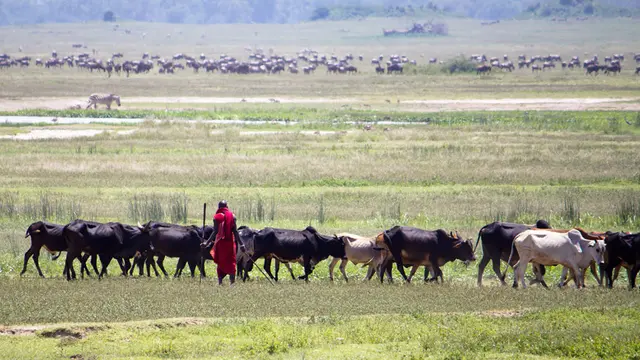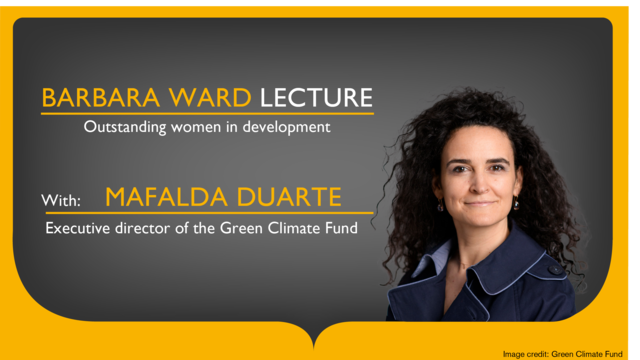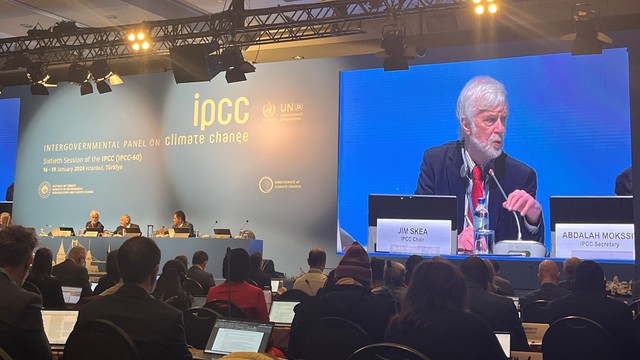Why the ‘climate club’ needs to take on investment rules
This year’s G7 agenda will include Germany’s vision for an ‘international climate club’ to drive urgent collaborative action. The proposal includes measures to step up climate ambition and ensure fairness and efficacy for member and non-member nations. But will this concept commit to reforming the investment treaties that can stymie climate ambition?



A coal-fired power plant in the Republic of Kosovo. Seventy-five per cent of the world’s foreign-owned coal power plants are protected by at least one investment treaty, complicating plans to take climate action (Photo: Lundrim Aliu/World Bank, via Flickr, CC BY-NC-ND 2.0)
Germany’s big push to accelerate global climate action at June’s G7 summit will focus on the idea of an ‘international climate club’. Chancellor Olaf Scholz laid out the agenda last summer, when he was Finance Minister in the last administration.
In a statement naming climate action as the “greatest challenge of our time”, Scholz stressed the urgency of implementation. But he also recognised that climate change cannot be tackled successfully if countries work alone, or even as a group like the European Union (EU).
Instead, he outlined the vision of an ‘international climate club’, “for everyone who is moving forward with ambitious climate goals. This open, collaborative club will set joint minimum standards, drive climate action that is internationally coordinated and ensure that climate action makes a country more competitive at the international level.”
The proposal in outline
The key characteristics of the proposed international climate club were set out in a key issues paper (PDF) prepared for the German cabinet in August 2021. It is planned to be:
- Ambitious: demonstrated by a shared commitment to the Paris Agreement goal of limiting warming to 1.5°C above pre-industrial levels and also to achieving ‘climate neutrality’ by mid-century at the latest. Concrete and credible interim targets would be set against these ambitions to ensure progress
- Bold: action will be taken across all sectors including ‘hard to abate’ areas such as energy-intensive industry, with a commitment to share technology and collaborate to achieve rapid progress, and
- Cooperative: the introduction of joint measures within the club to prevent ‘carbon leakage’ caused by, for example, club members moving carbon-intensive production to non-club countries, or club members’ goods being replaced by more carbon-intensive versions.
The same paper also proposed measures aimed at making the international climate club as open and collaborative as possible – and ensuring that exemptions and compensation measures be introduced for a range of countries not initially included.
This aspect is critical, because the least developed countries and small island developing states – as recognised in the paper – are more vulnerable to loss and damage from climate change; would unfairly suffer from economic exclusion; and have no historical responsibility for the climate crisis.
An opportunity to step up action
If the international climate club proposal is implemented, it could accelerate climate action in significant ways. Initial interest is likely to come from the EU as a whole, beyond those member states that are also G7 members, increasing the potential effect.
But achieving impact will require addressing a range of key issues, including whether the climate club can stimulate the increases in climate finance for adaptation and for loss and damage that the world urgently needs.
And in seeking to do good, the club must also consider ways to avoid doing harm: member countries must ensure that they – or their companies – are not complicit in forcing other countries to soft pedal on the urgent actions the world needs to avert climate disaster.
Fair and effective means tackling the real issues
To make the concept of the international climate club both fair and effective in reducing rapidly greenhouse gas emissions, it will be vital that club members accelerate and deepen current plans to reform the international legal arrangements that can stymie action: investment treaties and Investor-State Dispute Settlement (ISDS).
In 2020, an IIED research report found that 75% of the world’s foreign-owned coal power plants are protected by at least one investment treaty. The report concluded that the broad protections these treaties provide, and the large amounts many ISDS tribunals have awarded to investors (particularly in the extractive industries), can make it more difficult for governments to keep warming below 1.5°C.
Indeed, the most progressive countries’ ambitions to end exploration for oil and gas – such as members of the Beyond Oil and Gas Alliance, an international alliance of governments co-chaired by Denmark and Costa Rica – are already being hindered by ISDS provisions.
A condition for the club: take on the treaties
It is time – or past time – to take bold climate action. The G7 should ensure that the proposed climate club will hold a core commitment to reform investment treaties and ISDS. To do this, conditions of membership should include pledges to:
- Radically modernise, terminate or withdraw from old treaties with ISDS provisions, including the widely used Energy Charter Treaty
- Exclude fossil fuel investments from protection in any new investment treaties
- Ensure that any investment protections safeguard the right and duty of states to regulate in the public interest, and
- Comprehensively reform arrangements to settle investment-related disputes.
With thanks to IIED climate change director Clare Shakya and associate researcher Thierry Berger for their inputs to this blog.


